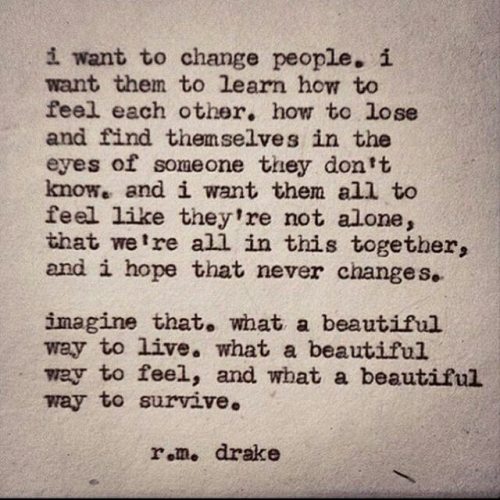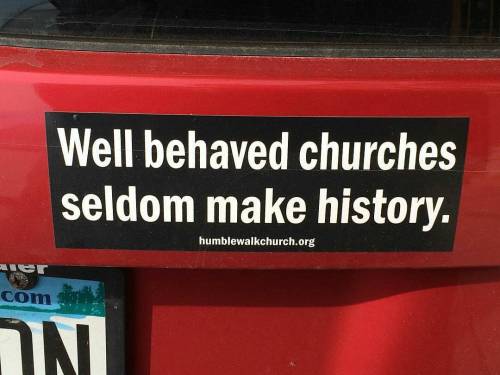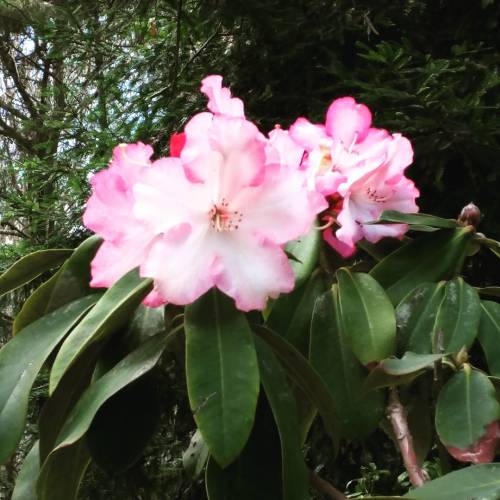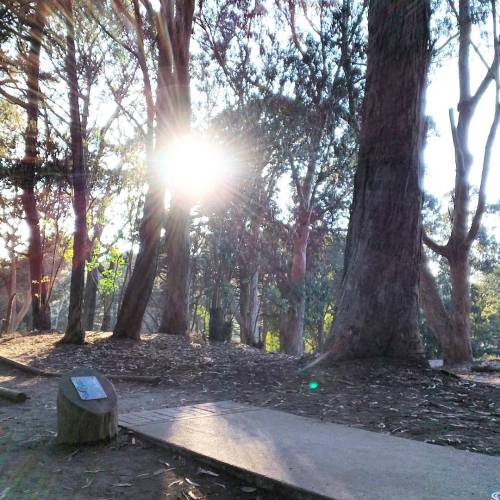Sunday, April 30, 2017
Saturday, April 29, 2017
Critical Theory
I think the insights provided by critical theory are crucial to the work of people of faith, perhaps especially those in social locations similar to my own (relatively privileged). Some of these insights are difficult for me to see on the surface of my daily life. I think critique has to be a continuing part of every aspect of our life if we are to see and address the needs of the world and do so in ways that are effective. Cultural critique is perhaps one of the most important, since I think we are often blind to our cultural lenses in ways that we are not blind to other lenses (maybe because our culture/s doesn't necessarily have physical indicators). When theology is not subjected to these kinds of critique, it operates within a closed system of "the text" (at least in my experience), which may or may not result in theologies which speak to the real needs of the world and its people.
Friday, April 28, 2017
Context, Context, Context
Kelly Brown Douglas suggests that ancient Germanic individualism was an inspiration to the "founding fathers" (Interesting-- I feel like my education suggested our system was modeled after Greco-Roman ideals, not Anglo-Saxon). I think the dominant modern Western self-understanding and ideology promotes a sense of individualism that (I believe) is essentially false and damaging. As Catherine Keller notes, discerning and acknowledging our complex interconnections and refuting, in a sense, individualistic ideologies, is important to the work of moving beyond oppressive structures and frameworks.
Thursday, April 27, 2017
Moder-nitty-gritty
I believe Catherine Keller would suggest that any contemporary consideration of the Christian tradition and scripture must be read in the interstices of empire, since the Christian Scriptures arise out of empire and are promulgated through it.
Wednesday, April 26, 2017
God
The views of God and Nature put forth by process theologians present a more helpful view of God and the world than traditional religious views tend to offer. When the classical view of an all-powerful, masculine God is rejected for a view of a God of Process which operates through nature and humanity, the responsibility of maintaining this world is put into the hands of people and creates a much more logical, useful worldview for environmentalists. When God is no longer an abstract, perfect God, humanity is responsible for the events of creation and destruction, maintenance and neglect.
“God cannot (really cannot) force people or the world to obey God’s will. Instead, God works by sharing with us a vision of the better way, of the good and the beautiful. God’s power lies in patience and love, not in force.” –C. Robert Mesle
Sunday, April 23, 2017
Equality
"While I know myself as a creation of God, I am also obligated to realize and remember that everyone else and everything else are also God’s creation."
— Maya Angelou (via thisplacehasknownmagic)
Saturday, April 22, 2017
Thursday, April 20, 2017
Resisting Structural Evil

Just wanted to share one of my fave textbooks by my professor for “Earth Ethics as Justice Ethics”. She does a great job of teasing out what systemic injustice looks like and highlighting our ways of complicity, as well as how the privatization of morality in a structured world creates huge gaps in how, when, and whose needs are met. Her writing is very organized and her style explicit, so I think if you hear things like “ systemic violence” and don’t really know what that’s about, this could be a good place to start. Her main push is environmental justice and her lens is intersectional. #ethics #earthethics #mdiv #seminary
Tuesday, April 18, 2017
Sunday, April 16, 2017
Saturday, April 15, 2017
John Shelby Spong
"These theologians [we studied in seminary] never had to deal with the reactions of ordinary folks who felt that their spiritual leader was destroying their faith. That would be the job of graduates like myself. Most graduates, I was to learn, however, would not rise to this challenge. They would graduate, pack up their seminary notes, and revert to the piety of their youth, undergirding their preaching with traditional religious understandings. They would claim the power to explain the ways of God to their congregations, thus encouraging the unbelievable concepts of a manipulative, invasive, this-world-oriented deity who governed the intimate details of people’s lives from a position just beyond the sky. I vowed that I would be different when I finally became a priest. Little did I know how difficult that would be."
— John Shelby Spong, from Here I Stand
Friday, April 14, 2017
Wiesel
"There may be times when we are powerless to prevent injustice, but there must never be a time when we fail to protest."
— Elie Wiesel (via thisplacehasknownmagic)
Tuesday, April 11, 2017
Pacific Lutheran Theological Seminary
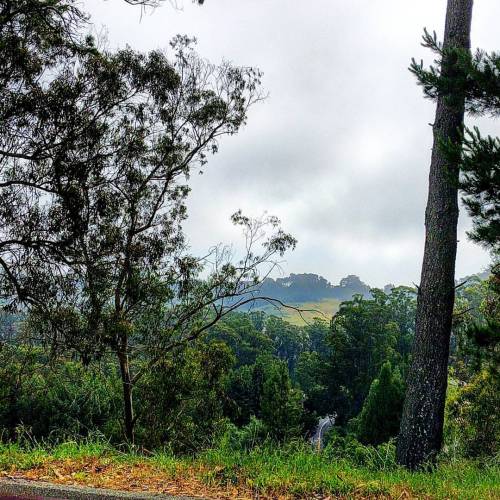
Good morning, Berkeley, you magical place, you. #mdivlife (at PLTS: Pacific Lutheran Theological Seminary)
Sunday, April 9, 2017
Saturday, April 8, 2017
Wednesday, April 5, 2017
Behave?
Forgiveness
In moments when I can’t seem to forgive myself for my faults and mistakes, I think I will try to remember that massive list of mistakes and faults of Christianity and Christians and how much I love that mess of a Church. I come back and love it hard every day, wanting it to live up to its potential and capable of seeing the beautiful light in the world that it can be and is, in many ways.And maybe I can love myself. MLK was an unfaithful husband. The best of us have our darkness.
Tuesday, April 4, 2017
Theological Anthropology of Critical Religious Pedagogy
It is important to critically analyse how we conceive of those we teach and beyond that, how we conceive of the human condition. As a “heretical” Christian, I find little in “traditional” anthropologies that I can identify with or that I feel offers a life-giving understanding, although Rosemary Radford-Reuther’s calls toward a feminist anthropology hit home. I like to think of people as co-partners in creating Kingdom.
As a future minister, my task is to take all of the theoretical ways that I interpret scripture and the world and embody them with intentionality. It is one thing to talk about equality and another to live it. Groome’s suggestion that “we are now Christ’s representatives to each other” he turns in on itself– this means that I need to consciously think about how I represent Christ, but furthermore, how my parishioners will (Groome, 268). It can be easy to step into hierarchical roles that lead us to abandon our “surface” theologies when we step into ministerial or teaching roles. The ways that I manifest Christ’s presence in my life will be critically important, but I must be continuously conscious of the reality that while I must live my anthropology, I must also make sure that I do not grasp it so tightly that I articulate my worldviews in ways that become empire-building over kingdom-building. Christ will work differently in different people’s lives and I must honor the ways that other people represent him (Groome, 268).
Groome, Thomas H. Christian Religious Education: Sharing Our Story and Vision. San Francisco: Jossey-Bass, 1999.
Sunday, April 2, 2017
Subscribe to:
Comments (Atom)
